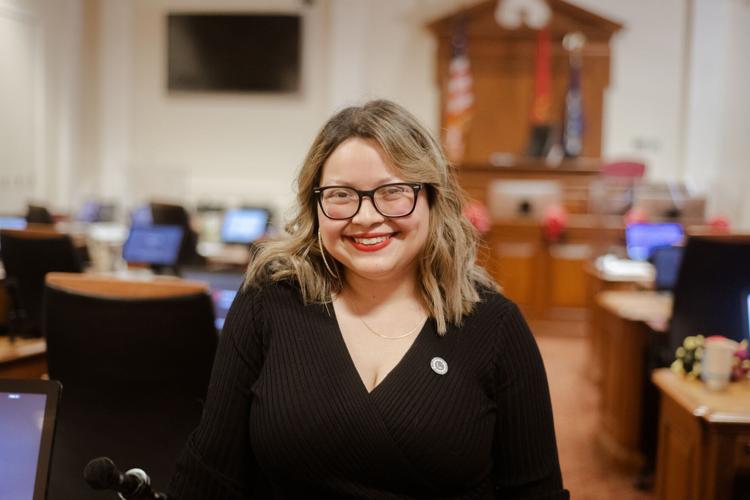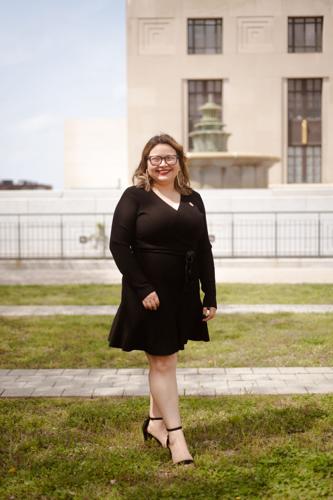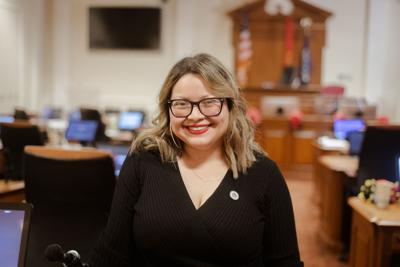Street View is a monthly column in which we’ll take a close look at development-related issues affecting different neighborhoods throughout the city.
It’s an unprecedented time for Nashville’s Metro Council. Last month, Republicans in the Tennessee state legislature passed legislation to cut the council in half, from 40 members down to 20. Then, on April 10, a panel of three chancery court judges ruled that reducing council size was illegal, halting its implementation. That same day, the council held a special meeting, where the body voted unanimously to reappoint Rep. Justin Jones (D-Nashville) to the Tennessee House of Representatives, just four days after his expulsion from the legislature.
But even in less busy times, the job of a Metro councilmember extends well beyond passing local resolutions and debating at the Metro Courthouse every first and third Tuesday. In their districts, they can do vital behind-the-scenes work strengthening community initiatives, representing constituents in crisis, and even responding to local emergencies.
This month, the Scene spoke with Councilmember Sandra Sepulveda about some of the less publicized parts of being on the Metro Council.
In District 30, Sepulveda represents nearly 19,000 people. But her council role sometimes extends beyond her district. She’s the first Latina (and second Latinx person, after Fabian Bedne) to serve on the council, so she’s often the first point of contact for many Spanish-speaking constituents. As the body’s only Latina representative, she’s a single voice representing an entire community, and that’s a role she takes seriously. “It’s a heavy responsibility to carry,” she says. “You don’t get the day off. If you’re not in the room, if you’re not fighting, there might not be anyone else who will see that perspective.”

Metro Councilmember Sandra Sepulveda
Like many of her colleagues, Sepulveda balances a day job with her role on the council. On weekdays after work at Conexión Américas, where she serves as community engagement and development manager, Sepulveda heads to the Metro Courthouse. On Mondays, she attends committee meetings; on alternating Tuesdays, council meetings. She’s on the council’s ARP committee and the city’s Homelessness Planning Council, and she and other councilmembers often attend district or citywide events on evenings and weekends.
The work of the Metro Council varies from district to district. Some districts have more zoning and infrastructure issues, while others require more assistance with issues like natural disasters or evictions. In District 30, Sepulveda has advocated for increased construction safety, increased diversity on city boards and free legal counsel for low-income renters. She’s stepped in often as an advocate for tenants facing eviction in her district. “During the pandemic, it hit really hard,” she says. “It’s usually an apartment complex. And sometimes it’s enough that I say, ‘Hey, I’m a councilmember, they’re trying to work through this thing.’”
Sepulveda has also faced more complex eviction cases. At one point, residents at an apartment complex experienced a fire and evictions on the same day. In that instance, a nonprofit contacted Sepulveda to see if she could help. “Then it was a lot of calling lawyers and getting other nonprofits involved.”
“I didn’t expect to have to deal with many landlords taking advantage of people because they are immigrants or because they don’t know their rights,” says Sepulveda.
On many evenings, Sepulveda also receives calls from constituents facing emergencies — most often “gunshots or something going on in the neighborhood,” she says. Being on call is typical for many Metro councilmembers, who field calls from constituents about issues ranging from abandoned ducks on the loose to gunshots from unregulated Airbnbs.
Sometimes Sepulveda receives calls from people who are waiting for a response from Metro’s non-emergency number and want her to follow up for them. “When you’re able to call yourself, it tends to move things along a little bit quicker sometimes, especially if there’s a big emergency,” she says. “Recently, I got a late phone call saying, ‘Hey, all the lights are on except for these four houses on this street. Can you reach out? We’re getting to very cold temperatures and there are elderly people here.’ So I’ll reach out to the NES to see what’s going on and push things along as much as I can. Because I know several of these departments are overwhelmed with work.”
Sepulveda also says emergency calls can vary widely. “An emergency could be trying to help a family who’s being evicted and getting them right to counsel — getting them connected to the free attorneys. It could be something like, ‘Hey, this person feels discriminated against and it was someone out of a Metro department. Can you help with this?’ Or it could be a gunshot. It just depends.”
Beyond day-to-day emergencies, the current council has dealt with an intense four years. “I don’t think any of us imagined going into our first term with a tornado, then COVID, then flooding, power outages and a bombing,” she says. “Yeah, it’s not a typical council load.”
And now, they’re facing an uncertain future. The Metro Planning Department has drawn up potential redistricting maps for the proposed council reduction. If the new lawsuit remains unchallenged, districts could stay the same until 2027 elections. Whatever the outcome, district councilmembers may be representing thousands more constituents apiece in the future.
Sepulveda says the council is a “full-time job” and her colleagues share a similar time commitment to the work. “A councilmember once told me that this will take up as much time as you let it,” she says. A recent council meeting, covering redistricting and the contentious Titans stadium deal, lasted until nearly 2 a.m. Some nights, Sepulveda works until midnight translating her bilingual newsletter or handling other administrative work.
Still, Sepulveda says the Metro Council’s work makes a tangible difference in people’s lives.
“There’s a good number of people who just think that their vote doesn’t matter and that local politics doesn’t matter, when we’re actually able to get so much done at the local level,” she says. “I wish more people would see more of those results and connect the dots.”







